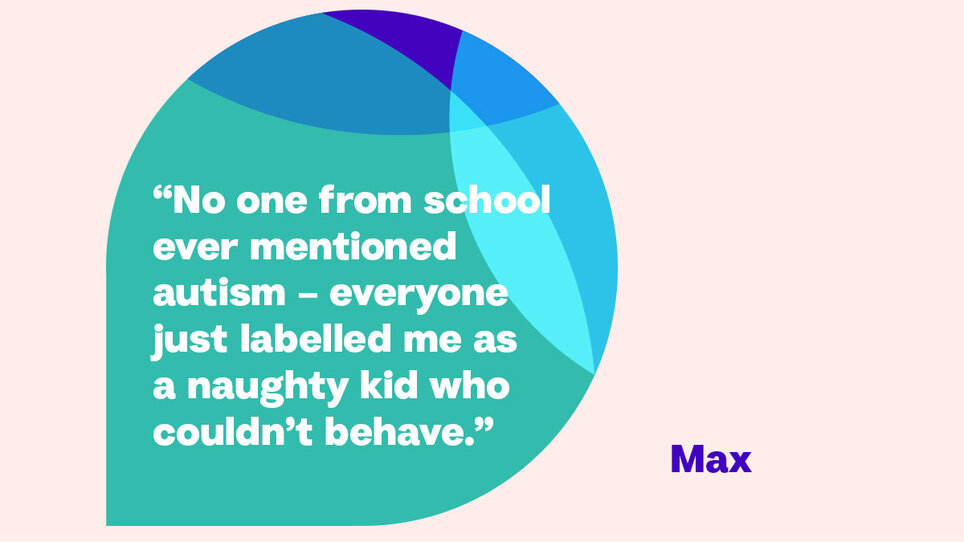From exclusions to university: How the right support changed everything for Max
Published on 12 October 2023

My name is Max, and I am a Young Ambassador and campaigner for the National Autistic Society.
I had a really rocky start to my education. I was kicked out of preschool, as I kept having meltdowns because the sensory environment was just too overwhelming. At primary school, I fell into the cycle of turning up to school at 9am, having a meltdown, being restrained, put in seclusion, and then being kicked off-site with a three-day exclusion by 11am. I’d then come back three days later to do it all again. I can’t go into much more detail – it was such a hard time that I think my brain has blocked it out.
No one from school had ever mentioned autism – everyone just labelled me as a naughty kid who couldn’t behave and my games were confiscated all the time. I didn’t get the support I needed, and my meltdowns were seen as bad behaviour.
I was about 9 years old when I got my diagnosis. This single bit of paper opened so many doors for me. I finally got support. I went to a Pupil Referral Unit, where the staff were amazing and understood me. I started to learn. Then, I moved to a specialist school for another year, and I learned so much more, and not just academically. I learned a number of techniques in this supportive environment so I could finally go to a mainstream secondary school and attend university to study education, knowing the reasonable adjustments I needed to learn and be comfortable in my environment.
Given the start I had, I feel really lucky that just this year I handed in my dissertation and finished my degree. I studied Education and intend to use what I have learnt to facilitate better support for autistic young people and to campaign for change. I want to see a fairer, more inclusive society so that other children don’t have to experience the same things I did.
As someone who studied education, facilitates training and basically never shuts up about autism, I often reflect on my experience in school; both the good, and the bad. Staff understanding (not just teachers), is the most important and powerful thing to me. It’s so important there is widespread understanding in schools, rather than a single person responsible for all autism support. This can only be done if all staff get training and professional development. It could make such a difference.
We have to break the cycle. Heartbreakingly, I know of a young autistic person who goes to my old school who is facing pretty much the same issues I had 10 years ago.
I and the other National Autistic Society’s Young Ambassadors contributed to the charity’s new Education Report which emphasises the importance of addressing the needs of autistic individuals and promoting inclusivity in schools. We highlighted the importance of creating sensory-friendly spaces and reducing sensory overload, recognising its impact on making students feel more comfortable and better able to learn.
We want to be part of driving change and advocating for an inclusive school environment that caters to the diverse needs of all students. We want schools to be the space that can offer a supportive and empathetic community, where autistic students and their non-autistic peers can thrive academically, socially, and emotionally.
By campaigning together, there is hope there will be a safe, inclusive and enjoyable future, and that autistic people in school who won’t have to fight daily with staff, school, and the system like I did.
Our next step is to meet with politicians in Parliament at the NAS Education event, so we can tell them of the urgent need for improvement.
Will you help me to make sure your MP is there?
